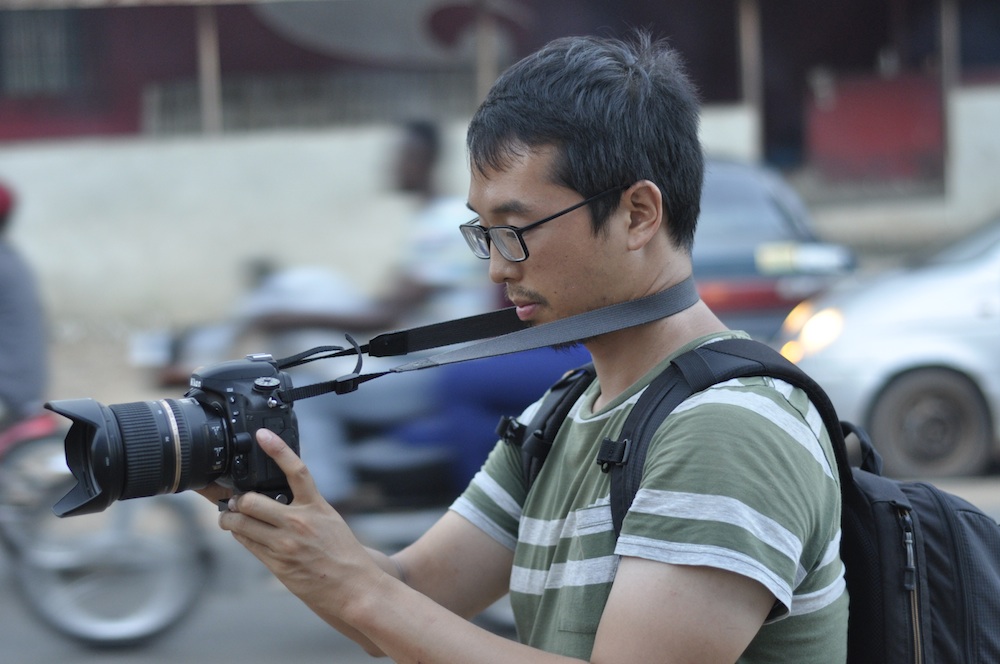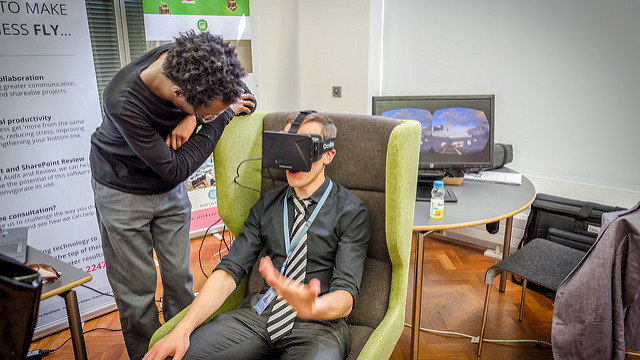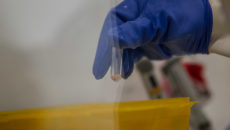It was a late Friday afternoon at the University of Liberia’s auditorium that Hipco artist Amaze launched his “Know Who to Vote For†music video. Near the stage in the middle of the aisle was a tall contraption. A conglomeration of cameras were mounted on a large stand which peered simultaneously at the crowd and the performers on stage.
Aaron Nah, the owner of this peculiar device, described it: “It’s all part of [a group of] technology that’s emerging recently called virtual reality and the stuff I’m doing – 360 videos – is something that uses all the technological basis of virtual reality. You can experience a scene as if you were there. You don’t just get a scene that’s in front of you, but you have a choice to look around from a single point of view. You can look up, down – so yea, it provides a very immersive media experience, I would say.â€
The finished video, which is posted on Nah’s employer’s Facebook page, allows the viewer to see every angle of the auditorium. The experience is more immersive when viewed on a smartphone, as the viewer can move the phone around and view various parts of the room.
Nah said there are many different technologies available for crafting virtual reality videos, including a device sold by Google that contains 16 different cameras that use cloud computing to stitch the footages from the various cameras.
The process he uses is more low-tech. “What I use is something which involves a more manual process,†he said. “I have multiple cameras – six, seven cameras – facing in all different directions and I record it. After recording, I get into a special software which allows me to stitch all of the footages together into one single giant footage.â€
This was one of the first times a virtual reality video was recorded in Liberia, but there has been a prior attempt. The earliest documented effort appears to be the documentary “Waves of Grace,†which was filmed during the Ebola outbreak and follows the story of an Ebola survivor.
While anyone can watch these videos on a smartphone or on a computer, the best way to be immersed in the experience is to use devices such as Oculus Rift or Google Cardboard. These devices cover the viewer’s eyes and provide a more engaging experience, separating viewers from the reality.
“It kinda tricks your brain into thinking as if you’re in someplace else, like not in your reality,†Nah said.
He said virtual reality has a lot of potential for use in Liberia, especially in sports and entertainment – especially music festivals. Perhaps the next iteration of Liberia’s most notable festival, the Hipco Festival, might be able to use virtual reality to place viewers in the midst of its 20,000 attendees.
Editor’s note: Nah’s employer, the Accountability Lab, is a funder and partner of The Bush Chicken.
Featured photo courtesy of Lloyd Massah




